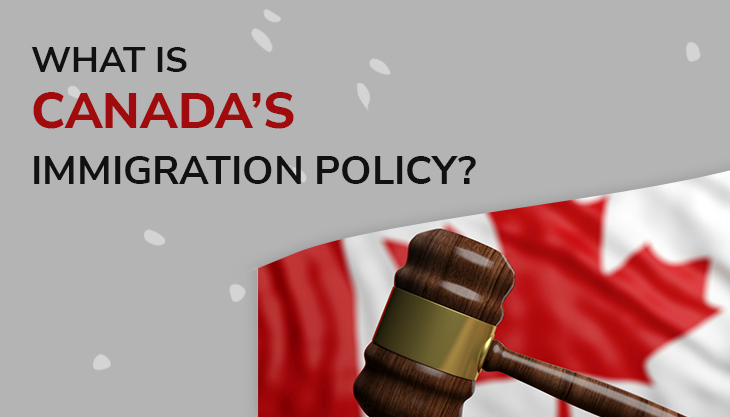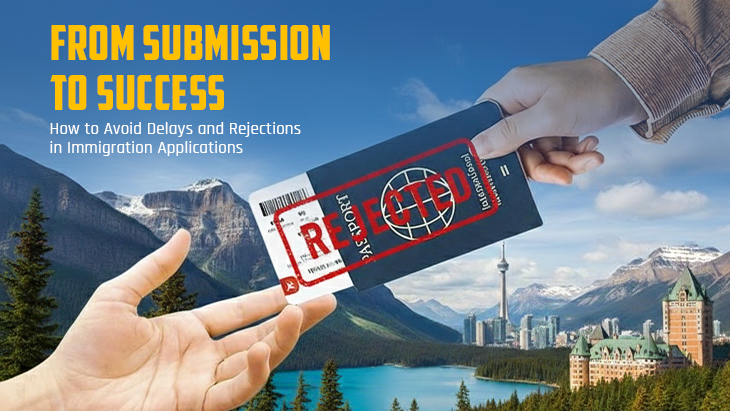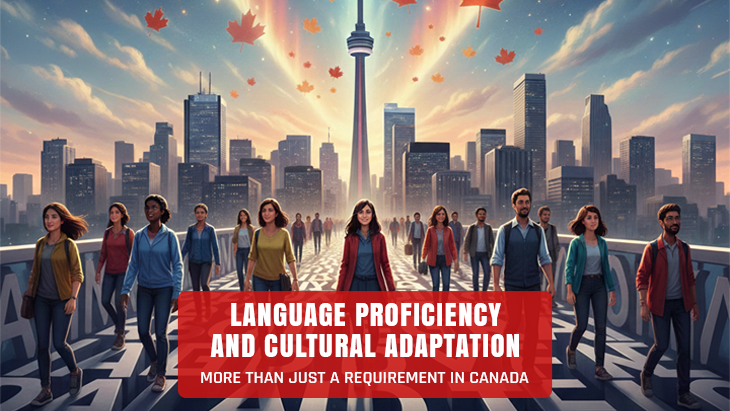Canada is increasing its proposed intake of immigrants into the country, targeting as many as 475,000 in 2024. The plan's primary beneficiaries will be Indians, as they comprise the single largest source country for immigrants to Canada.
The new targets were announced by Minister of Immigration, Refugees and Citizenship Sean Fraser. The 2022-24 Immigration Levels Plan aims to continue welcoming immigrants at a rate of about one percent of Canada's population, including 431,645 permanent residents in 2022, 447,055 in 2023, and 451,000 in 2024. However, the high end of the range forecast for 2024 could reach 475,000.
The majority of immigration into Canada is in the economic class, with Indians making for almost 60% of those numbers. The 2021 Annual Report to Parliament on Immigration, tabled this week, showed that India remains the most significant source of immigration into Canada.
An experienced Canada Immigration Consultant can help applicants with visas and other procedures. The visa process and application are more likely to be done fast-tracked. Their goal is to approve successful applicants within weeks.
What Is Canada's Immigration Policy?
Canada is working on a new fast-track immigration program for temporary foreign workers and international students. Immigration Minister Sean Fraser said the new program would be a permanent pathway for temporary residents. It will be similar but not identical to the Temporary Residence to Permanent Residence (TR2PR) program, which opened the door to 90,000 essential workers and international student graduates last year.
Shortly after being appointed immigration minister, Fraser was mandated to expand pathways to Permanent Residence for international students and temporary foreign workers.
Canada Immigration Policy:
1. Occupation based
As per the recommended changes for the amendments to the Immigration and Refugee Protection Act, the IRCC (Immigration Refugees and Citizenship Canada) to conduct occupation-based Express Entry draws in the next few months. The IRCC has proposed these amendments under Bill C-19, providing the immigration minister more liberty concerning inviting foreign skilled worker candidates in the Express Entry pool.
2. Six-month processing time for Express Entry
The IRCC (Immigration Refugees and Citizenship Canada) to resume the six-month processing time for Express entry applications (received by IRCC post issuing ITA). Due to the pandemic causing the situation, the IRCC was taking a little longer to process the applications. However, it is now back to within six months once again.
3. IRCC revised Express Entry Proof of funds requirement
IRCC has increased the Proof of Funds (POF) requirement for Express Entry candidates this year. To keep the EE profile eligible, all Express Entry candidates must update settlement fund numbers (per revised POF requirement) in their respective EE profiles.
4. IRCC revised Canada PR visa fee
IRCC (Immigration, Refugees and Citizenship Canada) has announced to revise the fees for all PR (Permanent Residence) Visa applications, including economic (i.e. Express Entry and PNP, etc.), permit holder, family and humanitarian classes, with effect from 30 April 2022.
5. Online application for Temporary Visas
Canada has extended the current Ministerial Instructions for all foreign applicants applying for a temporary resident visa, study permit or work permit from outside Canada to submit their applications electronically until 31 March 2023.
Canada Study Visa Process
The Canada study visa takes around 20 working days to get approved. Documents and financial proof are essential for a Canadian study permit. It is advisable to go through the Canadian consulate website and apply for a student visa.
The students must have documents like a letter of acceptance from a designated learning institution, passport, funding proof, transcripts, and certificates.
Step-By-Step Procedure for Canada Immigration
Step 1: Qualifying and eligibility for immigration
Canadian immigration programs and their eligibility requirements are elementary. To begin with, one needs to have a decent level of language proficiency in either one of Canada's two official languages, English or French, to help integrate into Canadian society that much easier.
To prove their language abilities, applicants must take a language test for immigration purposes. In addition, they should have enough settlement funds and not be inadmissible to Canada according to Canadian immigration law.
Step 2: Choosing immigration path and trying for permanent resident
In the next step, the applicant needs to figure out how they will become a permanent resident of Canada. Many immigration and visa programs are currently available for those who want to settle in the Great North.
The easiest way to determine your perfect path to Canada is with an in-depth eligibility assessment from certified visa consultants. Find out which immigration program to immigrate to Canada with an in-depth evaluation expertly.
Typically, applicants with Canadian work experience or qualifications qualify for even more immigration programs and are favoured by Immigration, Refugees, and Citizenship Canada (IRCC).
Step 3: Segregate the required documents
If the aspiring applicants ever wondered why Canadian immigration is such a lengthy process, then don't look further than the stack of documents needed to collect to submit the permanent resident application. It may take a while to manage them, so if they would like to be prepared.
Checklist of documents:
1. Valid passport or travel document
2. Medical examination certificate for immigration purposes
3. Biometrics
4. Police certificate
5. Language test results
6. Education Credential Assessment (ECA)
7. Valid job offer letter (if applicable)
9. Family information (if applicable)
10. Proof of previous relevant work experience
11. Proof of funds
These documents are required to support the initial claims. For example, Express Entry applicants who claimed CRS points for their level of education during the draw rounds need to submit proof of their foreign qualifications and get an Education Credential Assessment (ECA) that shows that their education is up to Canadian standards.
Medical Examination Certificate for Immigration Purposes
Applicants need to undergo a medical assessment to prove they're not inadmissible to Canada. Only doctors on this list of panel physicians can give you a medical examination certificate for immigration purposes. Select the country of residence to find the nearest doctor in your area. The average cost of a medical exam is $200.
In addition, all travellers five years of age or older entering Canada must provide proof of a negative COVID-19 test result. Currently, evidence of having a vaccine does not replace a valid test result.
Biometrics
Applicants must pay an $85 biometrics fee when they submit their application. Then, they will receive a letter indicating where they can go to give biometrics in person at biometrics collection services nearby.
Step 4: Applications and Submission
After all required application forms have been properly completed, the application processing fee paid, and all required documents from the document checklist have been collected. The applicant can submit their application online or mail it via courier to the relevant Canadian immigration department. For example, RNIP candidates must send applications to the centralized intake office in Sydney, Nova Scotia.
Step 5: Immigration Application Processing
The application will undergo a detailed review by an IRCC Officer, which can take a few months to complete. The Officer will consider all the information and documentation you have provided and assess it against current selection standards.
How Much Money Do You Need to Immigrate to Canada?
One needs a minimum of CAD 12,960 in savings to qualify for permanent residency and an additional CAD 3,429 per accompanying or non-accompanying dependent family member. The permanent resident application federal fee is CAD 1,325.
Express Entry
Canada's Express Entry system is fast. After submitting a final application for permanent residence, the vast majority of applications are processed in less than six months. With Express Entry, one can include their spouse, common-law partner, and dependent children. Express Entry provides a much more efficient and stable process for skilled workers looking to become permanent residents.
Express Entry is an application management system for three Canadian immigration programs, including the Federal Skilled Worker Program, Canadian Experience Class, and the Federal Skilled Trades Program.
Once IRCC receives your response to the ITA, their processing standard to respond is six months. The pandemic has slowed down actual processing times, however.
Canada will likely invite 401,000 new immigrants on permanent residence visas. Out of this number, 108,500 immigrants will get the invitation under Federal Express Entry System, while 80,800 will get an invite through Provincial Nominee Programs (PNPs). Canada is planning to invite more than one million people in until 2023.
The Canadian government has issued some crucial instructions for immigrants arriving in Canada. These guidelines have been issued mainly in the wake of the global pandemic. In these latest guidelines, the government summarises the roles and responsibilities of DLIs, provinces and territories, and Canada's government in supporting the international students.














Post Comments